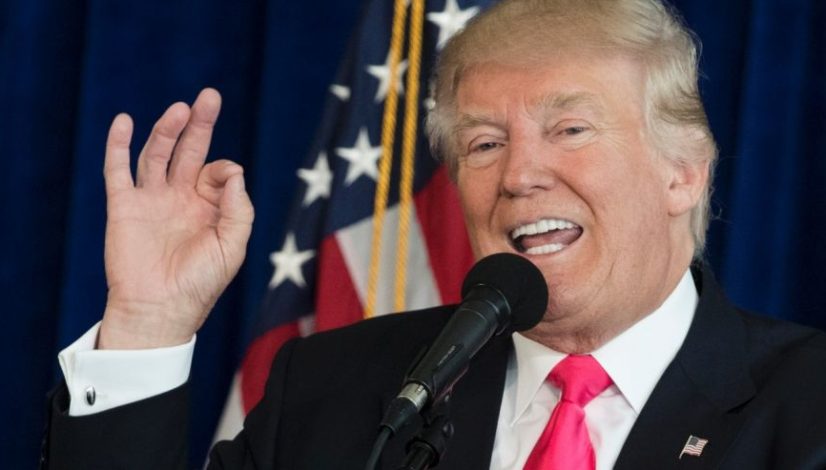Will Trump pivot on immigration? Here are four ways to move the needle and make it work
Donald Trump is pushing back against claims that he might change his stance on illegal immigration. Earlier, he was expected to propose a new approach on Thursday in Colorado; now that speech has been cancelled. Still, there is speculation that, following his meeting with members of a new Hispanic advisory committee over the weekend, he might back off on plans to deport the 11 million people who are in the country illegally.
I say, go for it. Mr. Trump’s hard stand on immigration has alienated not only the Hispanic community, but also many moderate Republicans. Though President Obama’s executive action to protect millions from deportation is not popular, most Americans applaud our country’s history of welcoming immigrants. But, most also want secure borders.
Also, the deportation notion is an idea that was scorned by many as impractical and inhumane. (I reckoned it would take a bus convoy stretching more than 10,000 miles, or 6 times the distance between El Paso and Canada, to get the job done.)
As he has recently laid out some sensible policies on the economy and on law and order, Mr. Trump has begun to recover in the polls. A modulated but intelligent approach to our immigration dilemma offers the GOP candidate a chance for even more progress.
Here is a four-step approach that might actually move the needle on immigration.
First, allow the 11 million people living in the country without papers an opportunity to achieve legal status. Those who apply and fulfill various requirements, such as having no criminal record and having a credible employment history, would become legal alien residents, which would allow them to work and pay taxes. There are already thirteen million people in the country who have that status; there would be no stigma and it would bring millions out of the shadows.
To counter critics who would call this amnesty, or who would charge the approach as unfair to those who have entered the country illegally, stipulate that these legal alien residents would never have a shot at citizenship. This should be acceptable since under today’s policies their children born in the U.S. are automatically citizens.
Second, end birthright citizenship. The policy of automatically granting citizenship to every child born on American soil is outdated and harmful. The United States is one of only two advanced countries that still embrace birthright citizenship; most have long ago discarded the practice. We grant citizenship to more than 300,000 babies born to undocumented people in our country every year – many more than enter each year without papers. We also reward so-called “birthright tourism”, whereby tens of thousands of women come to the U.S. every year from countries like China and Russia to deliver their babies on U.S. soil. Because of our family-friendly immigration policies, those foreigners know that come hard times in their country, that baby could usher relatives into the U.S.
Granting automatic citizenship makes it impossible to close our borders. This prize, worth millions of dollars in benefits over the course of a lifetime, is irresistible. Though it would require an amendment to the constitution, this change should and can be made as part of a bigger deal. In 1993 Senator Harry Reid proposed limiting birthright citizenship to U.S. citizens and legal resident aliens; since then, there have been other attempts to make a change.
Third, seal the borders. The Obama administration has claimed that it is impossible to prevent people entering the country illegally. Many would argue they haven’t tried very hard. By its various amnesty proposals – like the DACA in 2012 or the broader executive order protection millions more from deportation, the White House has encouraged undocumented migrants; the welcome mat is quickly visible thousands of miles away.
Obama’s outreach to Cuba has launched another wave of migrants, as people from that country worry the U.S. might jettison our long-standing policy of giving them automatic sanctuary. Also, a judge ruled last year against indefinite detention of people caught crossing the border and ordered them released within a few days. Thousands have simply disappeared into the system; some 15,000 who were denied asylum stayed anyway. The message sent south: the doors are open again.
Unless the U.S. prevents people from crossing the border or undertakes a tough policy of deporting those who enter back to their country of origin, we will continue to see the ranks of the undocumented grow. It is impossible to imagine that in this day of drones and advanced surveillance we cannot do a better job. Maybe it takes a wall; maybe not. But this is not an impossible job.
Finally, revise our immigration policies so that they attract the best and the brightest people in the world. The United States’ immigration policies are outdated not guided by self-interest. As an example, taxpayers underwrite many of the world’s greatest universities, which attract some of the smartest young people in the world. We then often refuse to allow those highly educated and ambitious graduates to stay in our country. This is stupid.
We need to fix this. Trump should take it on.
Published here.




